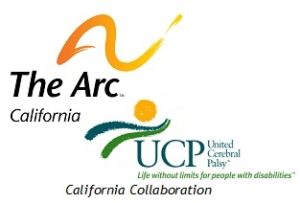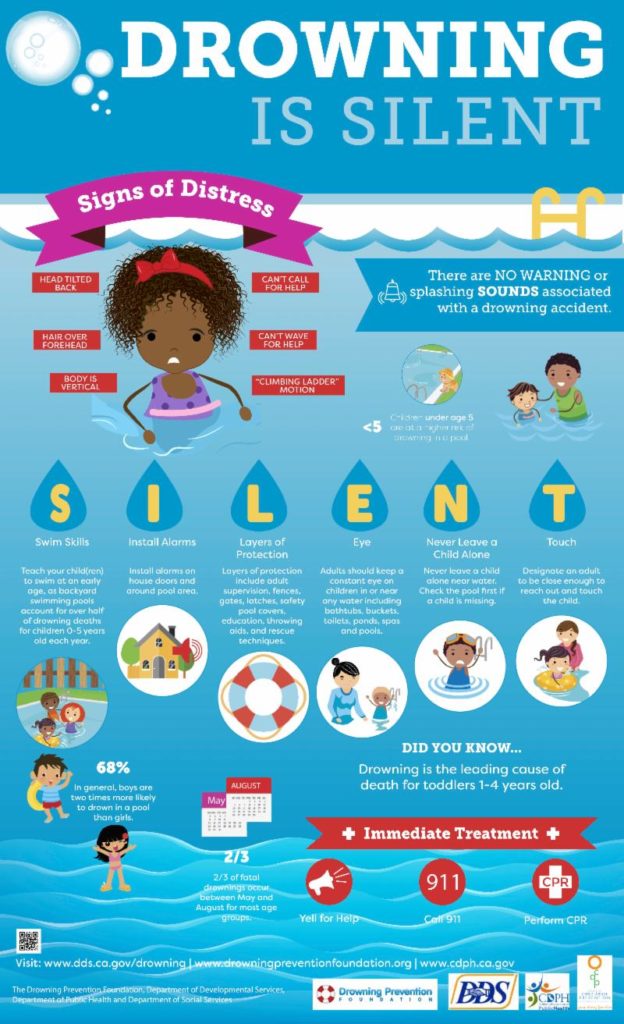The weather is heating up and summer fun is just around the corner! We all look forward to summer activities and many of those activities involve water such as boating and swimming. Unfortunately, recent California statistics indicate that nearly 60 children per year die from drowning related accidents and that drowning is a leading cause of injury related deaths among children. Additionally, children who survive a near drowning incident often suffer permanent brain damage. The California Department of Developmental Services currently provides services for 755 survivors of near drowning accidents who require lifelong supports for their disabilities.
Tips to Prevent Drowning
Never leave a child alone near water, even for a few seconds
A supervising adult should be close enough to touch the child under 4 years old near water
Keep a constant adult eye on young children
All collections of water are dangerous for infants and toddlers including bathtubs, buckets, toilets, ponds, spas, swimming pools, and natural water sites
Swimming pools should have fences, alarms, and drains that meet regulations
Pool gates should be self-latching, opening outward, with the latch out-of-reach for a child
Keep reaching and throwing aids near a swimming pool
All children should wear a personal floatation device while playing near bodies of water
Parents and child caregivers should know how to perform rescue techniques and strategies to respond in an emergency
If a child is missing, check the pool first
Each year we partner with The California Department of Developmental Services to spread the word about safety and drowning prevention and the DROWNING IS SLIENT campaign. This year the DDS has a downloadable Infographic Poster in English, Spanish, Chinsese, Farsi, Korean, Tagalog and Vietnamese https://www.dds.ca.gov/Drowning/
We are asking EVERYONE to share this, take it to community pools, preschools, schools, community centers, parks and recreations, family resource centers and any other place you think families and people that work with children can benefit from this information.


Teresa Anderson, Policy Director, The Arc & UCP Collaboration

